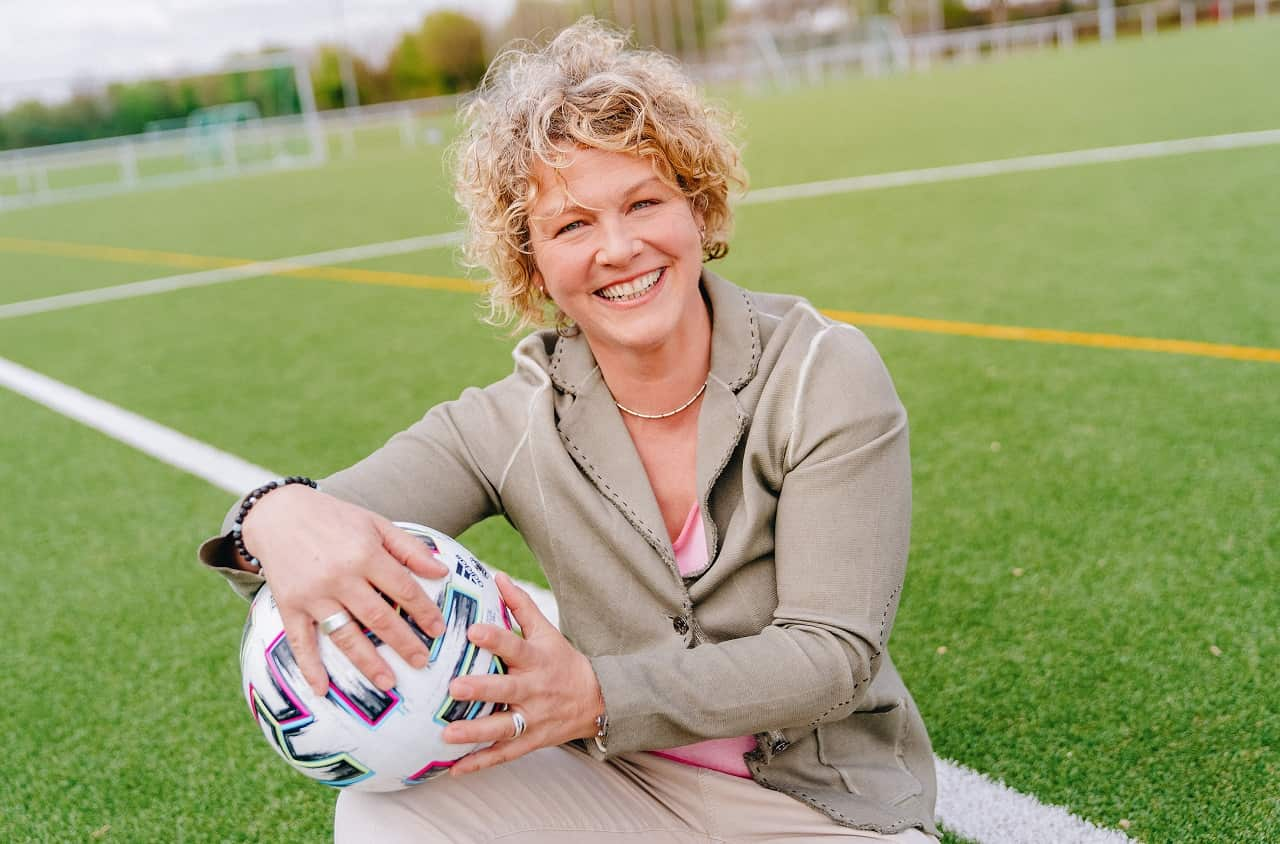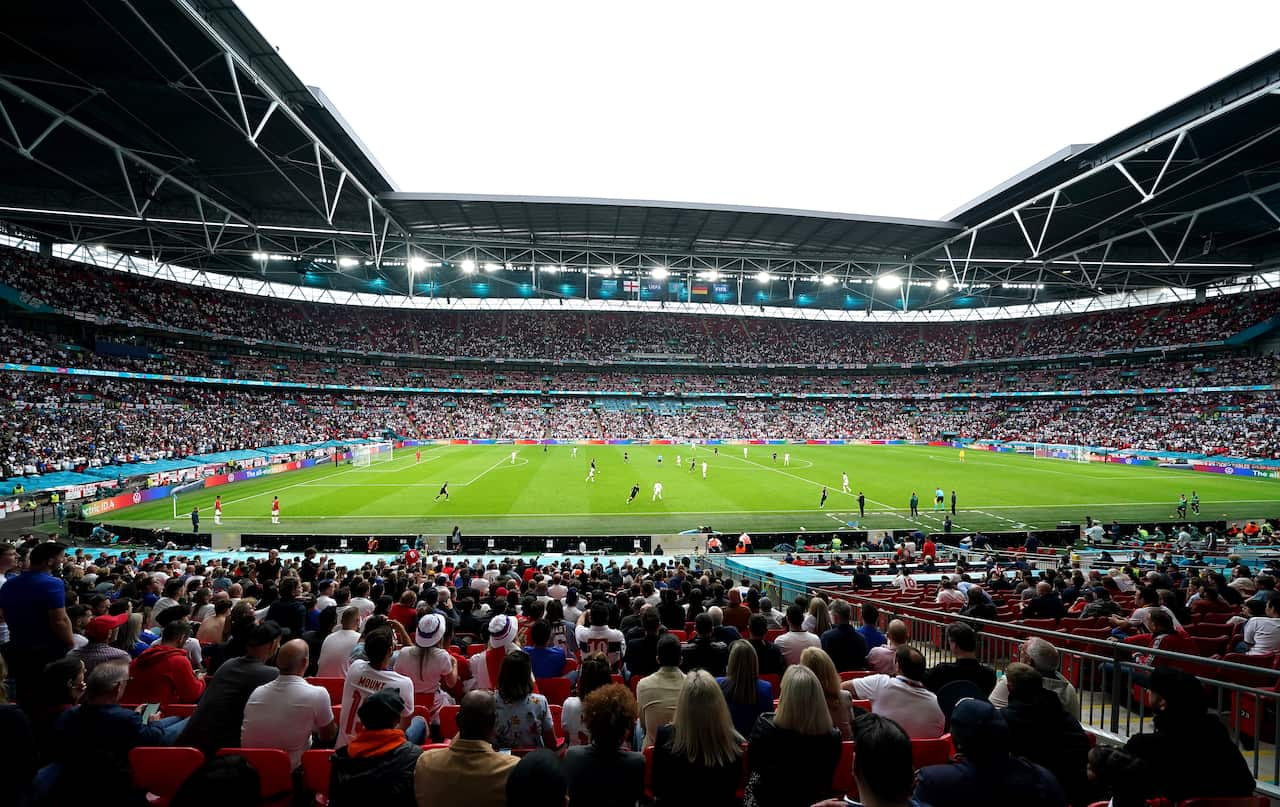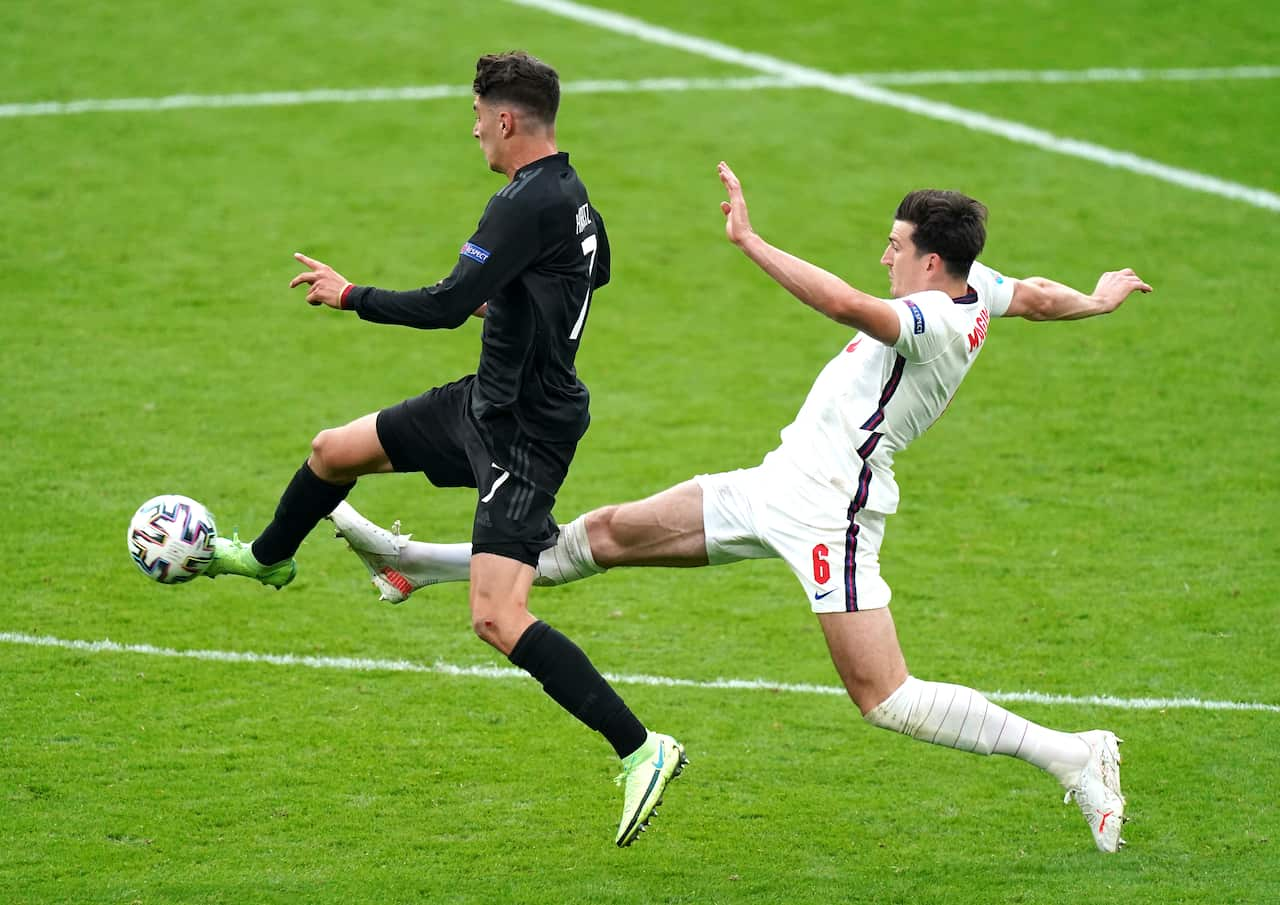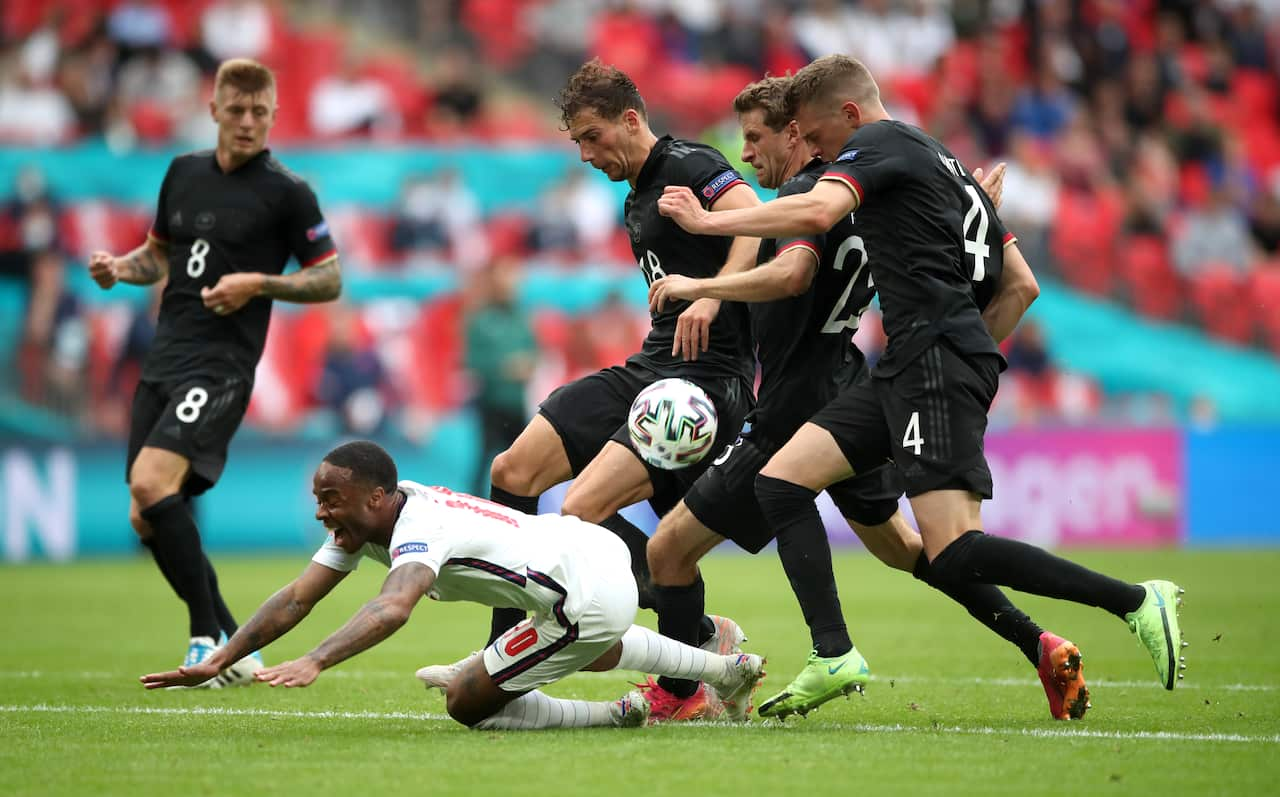After a bitter loss to England, the German national team bowed out of Euro 2020 before the quarter-finals with the dejected stars now watching the rest of the competition from home.
But one German woman will make it to the final in Wembley.
It's Julia Metzner and her career as a sports reporter began at SBS Radio in Melbourne.

Initially, she joined the German program as an intern but Executive Producer Christian Froelicher soon discovered that Julia shared his passion for the sport.
The first highlight of their cooperation came with the 2002 FIFA World Cup, jointly hosted by South Korea and Japan. Germany was one of the 32 teams that had qualified for the tournament and was a favourite to win.
Naturally, listeners of the German program were keen to follow the events on the field. However, there were no German language broadcasts available of the matches.
But Julia and Christian had a plan.
With a nod of approval from SBS radio management, they spent nights in the studio watching an English language cable TV broadcast of the World Cup, turning what they saw on the screen into their own ‘live’ match commentary.
The audience of the German program loved it.
Night-shift workers, long-distance truckies in Western Australia, and lonely souls from remote corners of the continent sent messages of appreciation.
Other big sporting events followed such as the Tennis Australian Open in 2003 where Julia interviewed a very young Roger Federer.
“I have many, many good memories of reporting from interesting sporting events for SBS Radio”, says Julia.

Back in Germany, Julia pursued her dream of becoming a sports reporter despite the profession’s entrenched reputation as a stronghold of hairy-chested blokes.
“I have to thank Australia and SBS for the many opportunities to gain experience as a reporter. Down Under nobody cared if I was a woman, a man, or whatever else as long as I was interested in my job and performed at the microphone.”
Julia’s assault on the male bastion of sports reporting was made easier by a change of attitude in German broadcasting, prompted by the belated recognition that half the radio and TV audiences are made up of women.
“I had the good fortune to be at the right place at the right time. Backed up by my Australian work experience, I was selected for further training as a sports broadcaster”, says Julia.
It wasn’t always plain sailing and Julia had to fight for respect from some of her male colleagues.

“Only recently”, she says” I received an anonymous message suggesting I would do a better job working at the radio archives than reporting from the football.”
Julia says she now just shrugs her shoulders when she receives such abuse.
“People like this have missed their time. It’s the 21st century now and we have to move on from such obsolete views.”
Sexual harassment is another challenge for female sports reporters, says Julia.
“It doesn’t happen in top-level football any longer. There are too many cameras around, too much social media and players and clubs are afraid of expansive damage to their reputations. It’s a different story however in less prominent male-dominated sports such as wrestling or boxing. A female reporter has to be on her guard.”
Julia says she never goes into male dressing rooms.
“I did interviews after an ice hockey match in front of the winning team’s dressing room. Every time the door opened and a player came out, the pong from the room was overwhelming.”

In almost 20 years since Julia started at SBS Radio, her career has blossomed.
She is now part of an elite German public broadcasting reporting team that provides commentary of national and international football championship matches, such as the EURO 2020 final on Sunday.
On German radio, Julia is the first woman in that role.
She says she’s a bit embarrassed about the public attention she is receiving for making it to the top of her profession.
“I’d rather not be singled out as the first woman achieving this honour. I see myself as one of the eight members of this prestigious reporting team who just happens to be female.”
She says she adopted Australia’s confident have-a-go attitude which has carried her through many challenges during her successful career.
And it fills her with pride, she says, to sit in the commentary box on Sunday when the two finalists will line up on the hallowed turf.
Football is coming home to Wembley.
